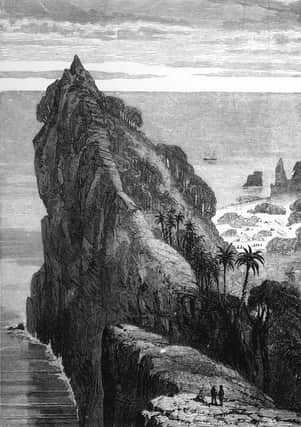How a remote Pacific island named after a Scot has just elected its first non-native leader


Fair Isle, Unst, St Kilda: we do have a few.
But there is one island in the South Pacific, which can rightly lay claim to being the most obscure inhabited British territory: Pitcairn Island. Actually a group of four volcanic islands, with Pitcairn Island itself the only one with residents, the settlement was founded from descendants of the mutinous British sailors who in 1789 mutinied against their captain William Bligh on the ship HMS Bounty.
The incident, which later become known worldwide as “The Mutiny on the Bounty”, has become the stuff of legends, featuring in many books and films. A lesser-known fact is that the island was originally named after a Scot – Robert Pitcairn, then a teenage crew member of HMS Swallow, spotted the islands while on lookout, thirty years before it was inhabited by the mutinous Bounty crew.
Advertisement
Hide AdAdvertisement
Hide AdNow, for the first time, the island nation, which only recently got round-the-clock electricity, has named a non-Pitcairn-born resident to be its mayor.
Yorkshire-born Simon Young, 57, who moved to Pitcairn permanently with his American-born wife, Shirley, in 1999 after an earlier stint living there in 1992, squeezed a victory in the recent elections, winning 19 votes versus 16 for an islander who was also seeking the office. The total of 35 votes is an impressive turnout when the 47-strong (at last count) population of the island is considered – with some inhabitants presumably children and not eligible to vote.
Mr Young, who was the editor of the island’s newspaper – The Pitcairn Miscellany - for two years before moving into politics, is a military veteran, having served in the Royal Air Force. His leadership, which has already taken him to London, which he described as a “culture shock” after so many years away, is that of any modern leader. Pitcairn is the smallest territory to have been added to Russia's sanctions list after it banned Russian ships from docking there.
Despite his non-native origins, Mr Young fits in well. Although, no relation to a previous namesake leader of Pitcairn – another Simon Young, who was magistrate of the British colony of the Pitcairn Islands in 1849 - his name is one of the most common on the island, where there are only 12 different surnames.